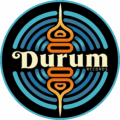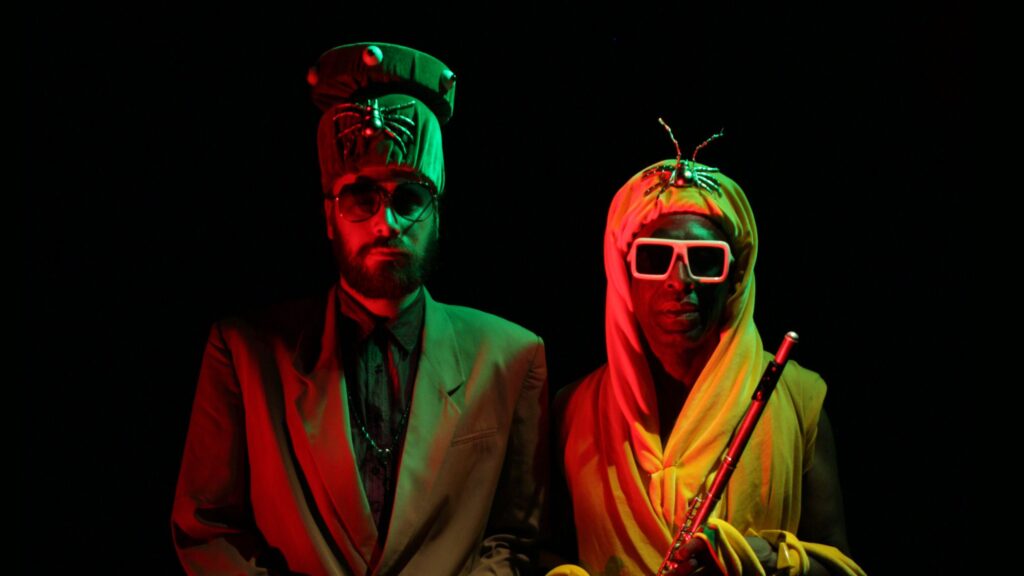From Cape Verdean disco to psychedelic funk, Arp Frique has always blended global sounds into something unmistakably his own. Niels Nieuborg, the mind behind Arp Frique, approaches music as a piece of art and now steps into new territory: a raw, soulful gospel project Arp Frique and the Perpetual Singers. We sat down with the Rotterdam-based artist to talk about the power of fusion, the stories behind his music, and what keeps him moving.
⸻
Introduction
What does the name ‘Arp Frique’ mean?
Arp Frique is a name that came to me out of nowhere and it reflects two sides of my musical DNA. ‘Arp’ refers to the ARP synthesizers from the ’60s and ’70s. Machines that symbolize a pivotal moment in music technology and sound design, and a way of making music I still love: hands-on, analog, no MIDI, no shortcuts. ‘Frique’ comes from ‘Le Freak’ by Chic, a track born out of frustration because they couldn’t enter the studio, but eventually turned into one of the most iconic disco anthems ever. That energy, that rebellion through groove, that’s something I deeply connect with. So together, the name stands for my love of old-school production and high-level dance music that moves people, both physically and emotionally.
How would you describe your music to someone who’s never heard you before?
This is the kind of question you secretly hope a music journalist answers for you, it always feels a bit awkward to describe your own sound. But if I had to break it down: the foundation of almost everything I make isn’t really disco, it’s funk-based. That’s the root. You’ll hear it in the basslines, in how I play the keys, how I use synthesizers. So to put it simply: it’s a mash-up of a funk state of mind, powered by the force of gospel vocals. Not just one lead voice, but multiple singers blending like instruments creating real harmonies you can’t fake or program. That layering does something emotional. It hits people.
What stories do you tell with your songs?
The stories vary. Some songs are spiritual, some deal with social issues, others are deeply personal. A track like Holy Ghost, for example, is super religious, but many people don’t catch that at first. And that’s okay. What matters most is the energy. Some listeners connect to the lyrics, others just feel the groove.
⸻
Roots
Your newest release is a gospel album. How did that happen?
It actually started with a realization: the only way to grow beyond what I’d done before was through the vocals. I’d been leading a band that had become a strong live act, but I felt we’d reached a ceiling. I wanted to do something bigger, deeper… and gospel has that power. What drew me in wasn’t just the sound, but the entire culture around it. I was surrounded by musicians from the Ghanaian church scene in Amsterdam Southeast, and I saw how music was embedded in their lives from a very young age. It wasn’t about music school, it was about community, energy, intensity. The level of musicianship blew me away. Gospel, to me, is where the roots of soul, blues, and jazz all come together. And what fascinates me most is the sound of the ’70s. Gospel before it got polished and commercial. Back then, it was rough around the edges, unfiltered, deeply human.
Apart from the gospel, what other influences feed into Arp Frique?
My music is fed by everything from Cape Verdean rhythms to ’70s disco, West African guitar patterns, Caribbean grooves, Brazilian melodies, and psychedelic funk. Growing up in Rotterdam shaped everything. It’s a city where cultures collide by default and that was my reality from a young age. I’d be in clubs where house, R&B, soul, and Caribbean styles all blended in one night. And during day time my Cape Verdean friends would be playing their music. While their moms cooked dinner, you’d hear Funaná and zouk in the background, without even realizing how deep that influence was sinking in.
What does fusion mean to you?
Fusion, to me, isn’t just mixing styles for the sake of it. For me, fusion means finding the common thread. Whether it’s zouk, soul, funk, or highlife these are all expressions of pop music from different places and times. It’s something that’s been happening forever. People love to think of cultures as isolated boxes, but music has always traveled, especially through people. Take Cape Verde, for example. It’s an island nation with a deep seafaring history. Their music absorbed influences from Portugal, Brazil, the US all brought back by sailors. It was just their sound, shaped by movement and connection.
What is your role as an artist in building bridges between different cultures?
I definitely see myself as a bridge, but not in a forced or symbolic way, it’s just how I live and make music. The stage is just the tip of the iceberg. The blending of cultures happens even more in the time we spend together off-stage. In my band alone, we’ve got people from Ghana, Curaçao, Suriname, and I’m the white guy from Rotterdam. And we joke about that too. The clichés, the stories, the cultural references. When we tour, we spend hours or days together. That’s where the real magic happens: bonding, sharing, teasing each other, learning. So yeah, I think music can break down walls, but the deeper connection comes from the people behind it.
⸻
Live
When you play live, what feeling do you want to give the audience?
When I play live, I want the audience to feel like they’ve been on a ride. Like they’ve just gone through a full experience, not just a setlist. I build shows the way I build albums: with surprises, dynamics, intros, outros, unexpected turns. Prince was a huge inspiration for me in that sense. He was a real show man: you never got bored, never wanted to skip to the next song. That’s what I aim for. I always ask myself: if I were in the crowd, would this still grab me after three minutes? That’s how I produce my shows too.
How does the crowd react to your gospel sets at festivals?
At first, I wasn’t sure how people would react, especially with gospel being such a loaded genre for some. Would they get it? Would they connect to it? But honestly, the response has been incredible. Most people don’t even realize what the lyrics are about at first. They just feel the energy. The music hits before the message does. People move, they open up, they connect. Whether the audience understands the references or not, they feel something real. And that’s all that matters.
⸻
Inspires

